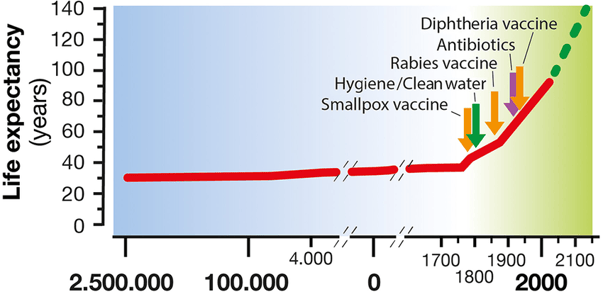
Medicine 3.0: A New Paradigm in Health and Longevity
HEALTH


The Evolution of Medicine: A Brief History
To understand Medicine 3.0, it is essential to recognize how it builds upon earlier phases of medical practice:
Medicine 1.0: The Era of Infectious Diseases
Medicine 1.0 refers to the early stages of modern medicine, which primarily spanned the late 19th and early 20th centuries. This period was characterized by:
Focus on Infectious Diseases: The primary goal was to combat infectious diseases like tuberculosis, smallpox, and polio.
Development of Vaccines and Antibiotics: Significant medical advancements during this time included the discovery of antibiotics such as penicillin and the development of vaccines, which drastically reduced mortality rates.
Public Health Initiatives: Improvements in sanitation, hygiene, and public health policies played a crucial role in controlling infectious diseases.
While Medicine 1.0 laid the groundwork for modern healthcare, it was largely reactive, focusing on treating illnesses after they appeared.
Medicine 2.0: The Age of Chronic Diseases
As infectious diseases came under control, Medicine 2.0 emerged in the mid-20th century, shifting focus to managing chronic diseases such as heart disease, diabetes, and cancer. This era is defined by:
Standardized Protocols: The implementation of evidence-based guidelines and standardized treatment protocols to manage chronic diseases.
Technological Advancements: The development of advanced diagnostic tools, imaging technologies, and surgical techniques.
Pharmaceutical Interventions: The widespread use of medications to manage symptoms and slow disease progression.
Medicine 2.0 improved disease management but remained primarily focused on treating symptoms rather than addressing underlying causes or prevention.
What is Medicine 3.0?
Medicine 3.0 is a term popularized by Dr. Peter Attia, a renowned physician with a focus on longevity and optimal health. This concept moves away from traditional models of healthcare, which often focus on treating diseases after they occur (known as Medicine 1.0) or managing symptoms with standardized protocols (Medicine 2.0). Instead, Medicine 3.0 emphasizes:
Prevention: Focusing on preventing diseases before they occur.
Personalization: Tailoring health strategies to the individual's unique genetic, environmental, and lifestyle factors.
Proactivity: Taking early and continuous action to maintain and improve health.
Key Concepts of Medicine 3.0
1. Prevention Over Treatment
One of the central tenets of Medicine 3.0 is the emphasis on prevention rather than treatment. Traditional healthcare often focuses on addressing diseases after they have developed. However, Medicine 3.0 advocates for identifying risk factors and intervening early to prevent diseases from developing in the first place. This approach not only reduces the burden of chronic diseases but also enhances the quality of life.
2. Personalized Medicine
Medicine 3.0 recognizes that each individual is unique and that a one-size-fits-all approach to healthcare is insufficient. By leveraging advances in genomics, biomarker testing, and data analytics, personalized medicine allows healthcare providers to create customized health plans tailored to each person's specific needs. This approach can lead to more effective treatments and better health outcomes.
3. Proactive Health Management
Being proactive about health means actively seeking ways to improve it, even in the absence of disease. Medicine 3.0 encourages regular monitoring of key health metrics, such as blood glucose levels, cholesterol, and inflammation markers, to detect potential issues early. By doing so, individuals can make informed decisions about their health and take actions that may delay or prevent the onset of chronic diseases.
4. Holistic Approach to Health
Medicine 3.0 takes a holistic view of health, recognizing the interconnectedness of various lifestyle factors such as diet, exercise, sleep, stress management, and mental health. By addressing these areas collectively, this approach aims to enhance overall well-being and longevity.
Nutrition: Emphasizes whole foods, personalized nutrition plans, and the role of nutrition in disease prevention.
Exercise: Advocates for regular physical activity tailored to the individual's goals and health status.
Sleep and Stress Management: Highlights the importance of quality sleep and effective stress management techniques in maintaining optimal health.
5. Embracing Technology and Innovation
Technology plays a pivotal role in Medicine 3.0, with innovations such as wearable devices, telemedicine, and artificial intelligence transforming healthcare delivery. These tools enable continuous monitoring, real-time feedback, and remote consultations, making healthcare more accessible and convenient.
The Benefits of Medicine 3.0
Embracing the principles of Medicine 3.0 can lead to several benefits, including:
Improved Health Outcomes: By focusing on prevention and early intervention, individuals can reduce their risk of chronic diseases and enhance their overall health.
Increased Longevity: Personalized and proactive health strategies can contribute to a longer, healthier life.
Empowered Patients: Medicine 3.0 encourages individuals to take an active role in their health, fostering a sense of empowerment and control.
Conclusion
Medicine 3.0 offers a revolutionary approach to healthcare that aligns with the modern understanding of health and longevity. By prioritizing prevention, personalization, and proactive management, this paradigm empowers individuals to take charge of their health and live longer, healthier lives. Whether you're just starting your health journey or seeking to optimize your well-being, embracing the principles of Medicine 3.0 can be a powerful step toward a brighter, healthier future.


